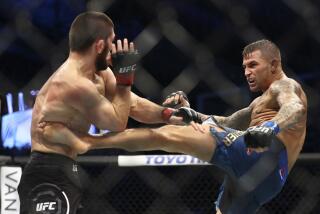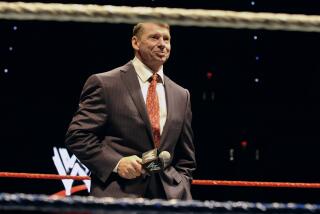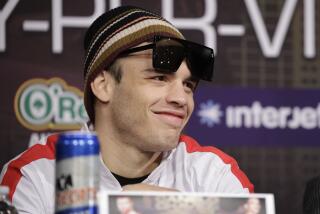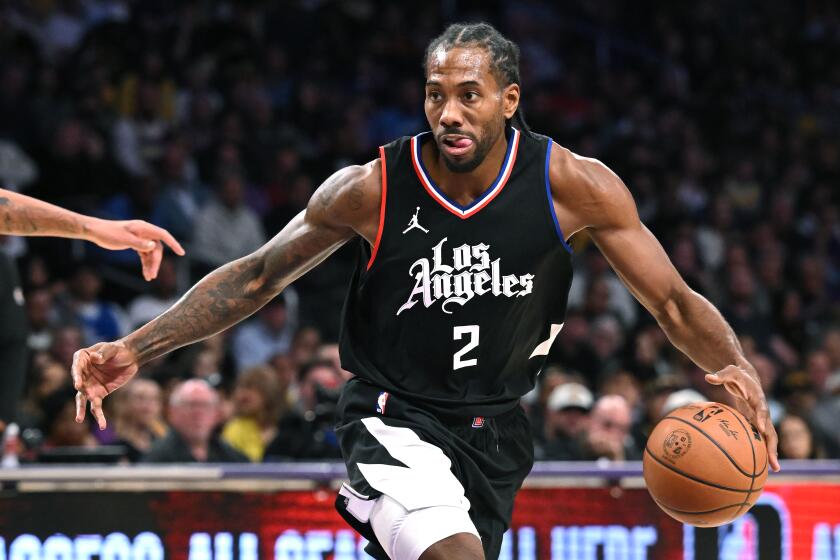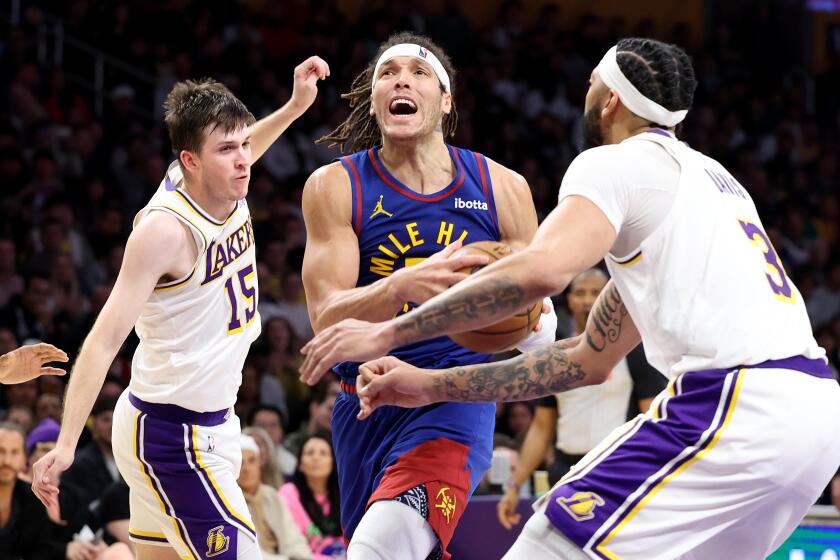Georges St-Pierre: Weak UFC drug test policy a reason he vacated belt
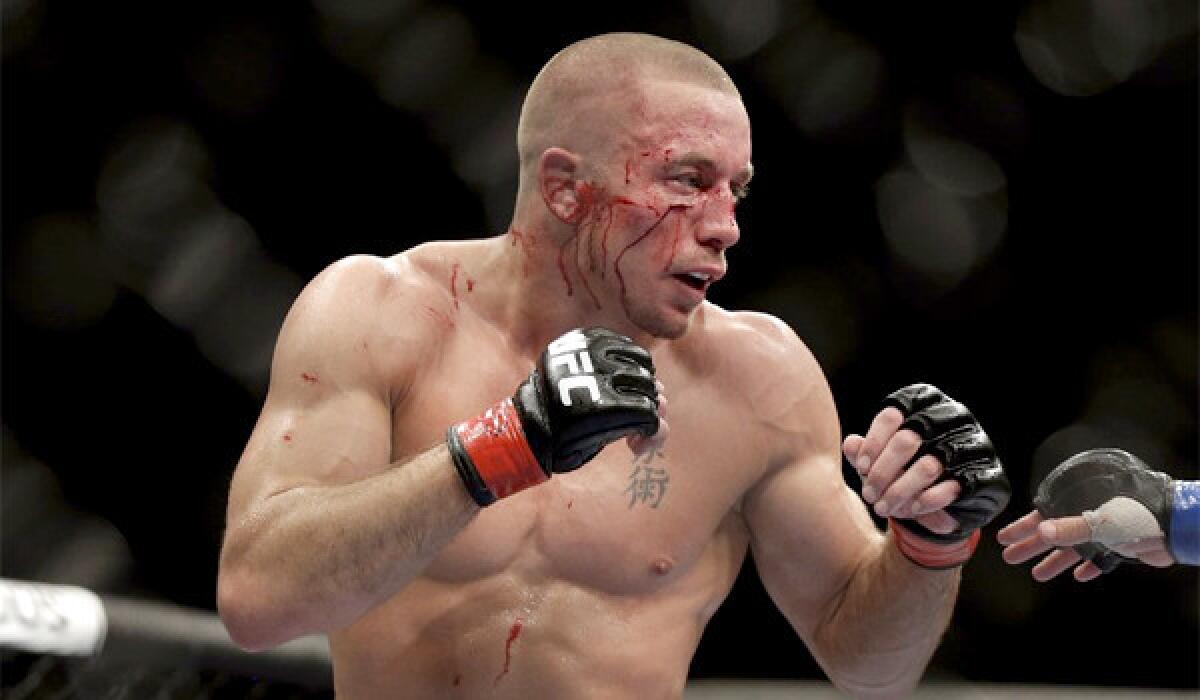
Georges St-Pierre said Tuesday the lack of stringent drug testing for mixed martial arts fighters contributed to his decision to take an indefinite leave as Ultimate Fighting Championship welterweight champion.
In an interview with reporters in Montreal, St-Pierre in a story published by Canadian Press said the absence of a uniform drug-testing policy up to his satisfaction “bothered me greatly. It was one of the reasons I decided to step aside.”
St-Pierre, who endured sometimes brutal punishment in November to successfully defend his welterweight belt against Johny Hendricks by split-decision in Las Vegas, originally wanted Hendricks to participate in drug testing overseen by the Las Vegas-based Voluntary Anti-Doping Assn. (VADA).
The two couldn’t agree to the protocol. VADA has secured a positive test for testosterone from then world champion boxer Lamont Peterson in Nevada and will employ the carbon isotope ratio test for synthetic testosterone that some agencies balk at because of the expense.
St-Pierre told the Canadian Press the UFC did not support him in his quest to move MMA testing to “another level” given positives for performance-enhacing drugs by title contenders, including heavyweight Alistair Overeem and middleweights Chael Sonnen and Vitor Belfort.
“I tried to change things, and unfortunately, maybe for money reasons, maybe for image, they were not ready to do that,” St-Pierre said. “I tried to [bring about] change in a very diplomatic way and it didn’t work, so it’s unfortunate, but I believe it will happen sooner or later.”
St-Pierre said in the octagon after the Hendricks victory and then in December when he officially vacated his belt that he was leaving for personal reasons that were “driving me crazy.”
UFC Chairman Lorenzo Fertitta told The Times on Tuesday evening that he was “completely confused” by St-Pierre’s suggestion that drug testing was also at the root of his decision to quit.
“I don’t know where Georges is coming from,” Fertitta said. “He said he needed time off for personal issues,” adding that St-Pierre never told Fertitta or White he was angered at their drug-testing plan.
Nevada’s inexact testing has been limited to no out-of-competition or in-training tests, as it was in the December 2012 boxing match between Manny Pacquiao and Juan Manuel Marquez, or it has included stiffer testing if the promoter helps foot the bill.
“We feel we have a system of rigorous, harsh testing for these drugs,” Fertitta said. “Anytime the commission has come to us for enhanced testing, we’ve said yes. We’ve been at the forefront of testing.”
Fertitta said his organization was “right alongside” outgoing Nevada State Athletic Commission Executive Director Keith Kizer’s push for more performance-enhancing drug testing.
Despite suggestion otherwise, Fertitta said there was “no friction” between his organization and Kizer, who made it clear late last year that Nevada would adhere to the World Anti-Doping Agency code as it related to a possible coming bid to fight in Nevada by Belfort.
The UFC announced Dec. 28 Belfort will be middleweight champion Chris Weidman’s next opponent.
“We’d like Vitor to fight for a championship, and those kinds of big fights usually happen in Las Vegas,” Fertitta said. “Vitor will apply for a license.”
Kizer has said the WADA code makes it clear athletes who seek a therapeutic use exemption to take testosterone cannot designate their reason for use as the effects of low testosterone that stem from past synthetic testosterone use.
“I don’t know what Vitor’s going to apply for, but he has no problem coming to Nevada and he’ll take it up with the commission,” Fertitta said.
As for St-Pierre, he said a possible UFC return does not hinge entirely on improving the drug testing, and that his decision to retire is not final.
More to Read
Get our high school sports newsletter
Prep Rally is devoted to the SoCal high school sports experience, bringing you scores, stories and a behind-the-scenes look at what makes prep sports so popular.
You may occasionally receive promotional content from the Los Angeles Times.
